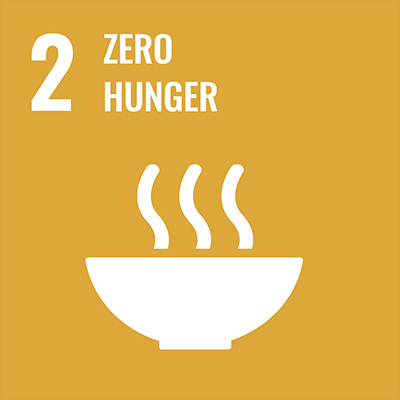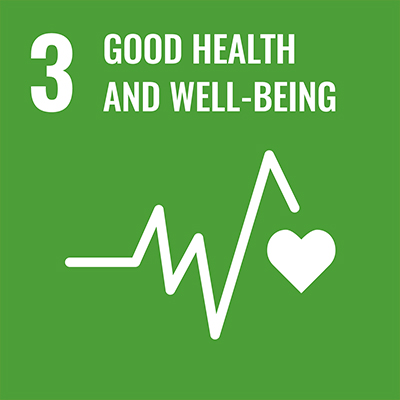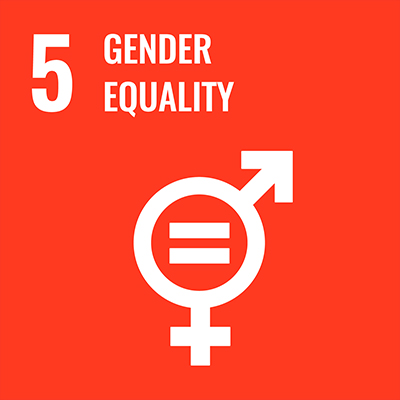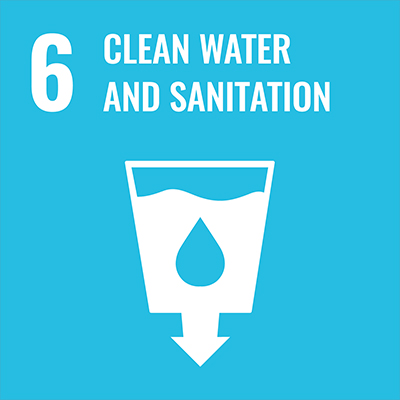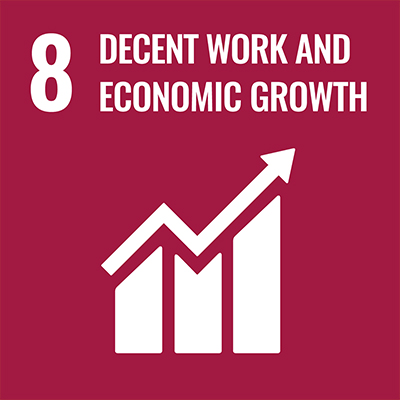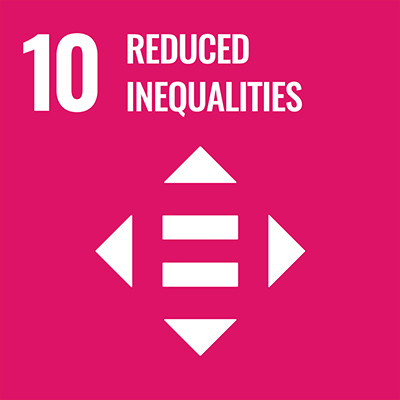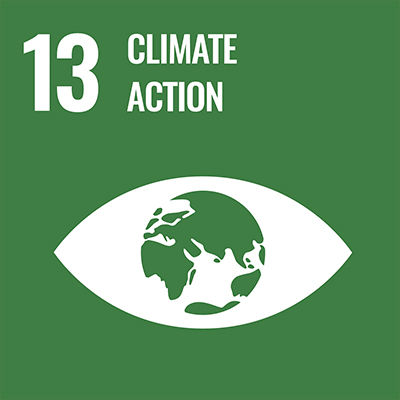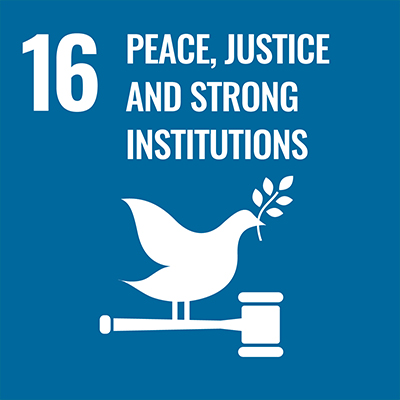Dr. Jasmin Lilian Diab (she/هي) is the director of the Institute for Migration Studies (IMS) at LAU, where she also serves as an assistant professor and coordinator of migration studies at the Department of Communication, Mobility and Identity. In 2025, her research was awarded the Lisa Gilad Prize from the International Association for the Study of Forced Migration (IASFM).
Dr. Diab is a research affiliate at the Centre for Refugee Studies at York University and a global fellow at Brown University’s Center for Human Rights and Humanitarian Studies. As of 2024, she is a visiting professor in migration studies at Sciences Po Lyon.
Prior to her position at LAU, she served as the refugee health program coordinator and research associate in political economy of health in conflict at the Global Health Institute at the American University of Beirut (2019–2021), and as research and project manager at the Lebanese Emigration Research Center at the Faculty of Law and Political Science at Notre Dame University–Louaize (2013–2019). She holds a PhD in International Relations and Diplomacy with an emphasis on Refugees, Asylum and Security from the School of Advanced International and Political Studies’ (HEIP) Center for Diplomatic and Strategic Studies (CEDS) in Paris.
Dr. Diab holds/has held the following visiting positions to present:
● Visiting Professor, Sciences Po Lyon, University of Lyon, France (2024–present).
● Global Fellow, Center for Human Rights and Humanitarian Studies, Watson Institute for International and Public Affairs, Brown University, USA (2021–present).
● Research Affiliate, Centre for Refugee Studies, York University, Canada (2020–present).
● Visiting Fellow, Centre for Lebanese Studies, Faculty of Education, University of Cambridge, UK (2022–2024).
● Visiting Professor, Department of Peace and Conflict Studies, United Nations–Mandated University for Peace, Costa Rica (2021–2022 and 2023–2024).
● Scholar-in-Residence, Raoul Wallenberg Institute of Human Rights and Humanitarian Law, Faculty of Law, Lund University, Sweden (2023).
● Inaugural Global Fellow on Migration and Inequality, Center for Policy Research, United Nations University, USA (2022–2023).
● Visiting Scholar in Forced Displacement, Human Rights Research and Education Centre with The Refugee Hub, University of Ottawa, Canada (2021–2022).
● Fellow, Internal Displacement Research Program, Refugee Law Initiative, University of London, UK (2021).
As part of faculty mobility exchanges, Dr. Diab has served as guest faculty at the Hellenic American University, the University of Graz and the University Institute of Lisbon. She has served as an external examiner and academic advisor at the University of Gloucestershire, Koç University, the University of Gondar, the American University in Cairo, the City University of New York, Charles University, Leiden University and the University of Adelaide.
Her work has been awarded the Center for Human Rights and Humanitarian Studies Seed Grant from Brown University (2023), as well as the Williams Institute LGBTI Global Small Grant from the University of California, Los Angeles’ School of Law (2023).
Dr. Diab serves as an editorial board member for Refugee Survey Quarterly, Frontiers in Sociology: Migration and Society, the Journal of Internal Displacement, and PLOS Global Public Health where she also serves as guest editor in ‘Humanitarian Aid, Conflict and Migration.’ She is an advisory board member for the Migration, Development, and Displacement Book Series.
Dr. Diab brings extensive expertise to the migration and development space, not only through her service on the boards of various organizations but also through her completion of over 100 consultancies for UN agencies, international humanitarian organizations, and governments. Her work has encompassed evaluating humanitarian programming, leading research in conflict settings, conducting gender analyses, and developing strategic plans for organizations supporting displaced populations and operating in hard-to-reach areas across Lebanon and the broader Middle East.
Dr. Diab’s research explores the intersections of migration, gender, conflict and international law. Her work focuses on refugee populations across Lebanon and the Levant, as well as migrant domestic workers, internally displaced persons and stateless groups within Lebanon and neighboring countries. In 2023, she led the largest-ever nationwide study on sexual violence in Lebanon, examining the intersectional vulnerabilities of migrant domestic workers through interviews with nearly 1,000 women from the community.
In 2025, her research on queer internally displaced persons (IDPs) from South Lebanon was awarded the Lisa Gilad Prize by the International Association for the Study of Forced Migration (IASFM) for its “innovative and thoughtful contribution to the advancement of refugee studies.”
Her ongoing research focuses on the protection of gender and sexual minorities in displacement settings, trauma-informed participatory approaches to displacement research, internal displacement from South Lebanon, return dynamics and barriers to accessing services in humanitarian contexts.
Dr. Jasmin Lilian Diab conducts research relevant to the following SDGs:
Selected Peer-Reviewed Journal Articles:
- Diab, J. L. (2025), “Fluid Borders, Temporary Refuge: The Cyclical Nature of Displacement between Lebanon and Syria,” Mashriq & Mahjar: Journal of Middle East and North African Migration Studies 12(1), link
- Diab, J. L. (2025), “Intersectional Impetus: Including Migrant and Refugee Resistance in Lebanon’s Antiracist Feminist Struggle,” Ethnic and Racial Studies, link
- Diab, J. L. (2025), “A Beirut Blast: How Inclusive Disaster Management for Refugees and Hosts Reassembled a Community in a Disintegrated City,” Gender and Development 32(3): 799–820, link
- Diab, J. L. (2025), “Hues of Refuge: Framing Compassion and Condemnation in Refugee Portrayals through a Political-Media Cycle of Reinforcement,” Journal of Race, Ethnicity, and Politics, 1-30 , link
- Sanga, L. A., Njeim, C., Ansbro, E., Naimi, R. K., Ibrahim, A., Schmid, B., Diab, J. L. et al (2025), “Evaluation of a Peer Support Group Programme for Refugee and Vulnerable Host Populations and Refugees Living with Diabetes and/or Hypertension in Lebanon: A Before-after study,” Conflict and Health 19(5), link
- Diab, J. L. (2025), “Displaced in a Land of Denial: Who is an IDP in Lebanon’s Reluctant War?,” Migration and Development 1-15, link
- Al-Azzeh, D. & Diab, J. L. (2025), “Psychological Impacts of Maternal Migration on Left-Behind Children: A Cross-Cultural Review,” Frontiers in Psychology 15, link
- Diab, J. L. (2025), “Access to Justice for Ethiopian Migrant Domestic Workers: Unveiling Legal, Structural and Gendered Violence in Lebanon,” Frontiers in Sociology 9, link
- Diab, J. L. & Alpes, J. (2024), “‘We don’t live in the future. We live in the now.’ How Time Intersects with (UN)Realistically Partnering with and for Refugees in Lebanon,” Journal of Diversity and Gender Studies (DiGeSt) 11(2): 148-158, link
- Diab, J. L. (2024), “Missiles and Misfits: Reimagining Home and Security for Queer Internally Displaced Persons from South Lebanon,” Journal on Migration and Human Security 12(4): 350-368, link.
- Diab, J. L. & Saban, A. (2024), “Nomads of the Void: Unpacking the Enigmatic Lives and Survival of Syrian Dom Refugee Women in North Lebanon,” Journal on Migration and Human Security 12(4): 388-402, link.
- Skulte-Ouaiss, J. & Diab, J. L. (2024), “Multiple Borders in One War: Constructing Mental Maps of Syrian Refugees as Threats,” Studies in Ethnicity and Nationalism: 1-19, link.
- Fakhry, Y., Hussein, F. H. & Diab, J. L. (2024), “Health in Crisis: A Paradox of Access for Syrian Refugees and Lebanese Hosts,” Health Services Insights 17: 1-13, link.
- Diab, J. L. & Samneh, B. (2024), “On the Margins of Refuge: Queer Syrian Refugees and the Politics of Belonging and Mobility in post-2019 Lebanon,” International Journal of Discrimination and the Law: 1-25, link.
- Diab, J. L. & Al-Azzeh, D. (2024), “Inclusive Inquiry: A Compassionate Journey in Trauma-Informed Qualitative Research with GBV Survivors from Displaced Communities,” Frontiers in Psychology 15, link.
- Diab, J. L., Jasiukaitis, S. & El-Zakka, Y. (2024), “Refugee Voices vs. Humanitarian Choices: How Much Can Refugee-Led Organizations Redefine Power and Agency in Post-2019 Lebanon?,” Journal of International Humanitarian Action 9(8), link.
- Diab, J. L. & Skulte-Ouaiss, J. (2024), “An Identity Quandary in Lebanon,” Georgetown Journal of International Affairs, link.
- Kaloti, R., Diab, J. L., Alkhalil, M. & Abbara, A. (2024), “Compounding challenges for Syrian Refugees in Türkiye in the Wake of the Earthquake,” The Lancet Global Health, link.
- Diab J. L. , Samneh B., Masoud D. and Cravero K. (2024), “Gender Identity as a Barrier to Accessing Adequate and Inclusive Healthcare for Syrian Refugees in Lebanon’s Northern Regions,” Frontiers in Human Dynamics 5:1205786, link.
- El-Zakka Y. & Diab J. L. (2023), “Youth Development and Spatial Configurations: Socio-spatial Inequalities in Palestinian Refugee Camps in Lebanon,” Frontiers in Sociology 8:1192511, link.
- Fouad, F. M., Hashoush, M., Diab, J. L. et al (2023), “Perceived Facilitators and Barriers to the Provision of Sexual and Reproductive Health Services in Response to the Syrian Refugee Crisis in Lebanon,” Women’s Health 19, link.
- Diab, J. L. & Scissa, C. (2023), “Gender, Migration and Environment in the MENA: Vulnerabilities, Frameworks and Ways Forward,” Journal of Migration Affairs 1-2: 11-20, link.
- Diab, J. L. (2023), “From Exclusionary to Participatory Feminist Peacebuilding in Lebanon: Examining the Roles of Refugees, Migrants and Women in All Their Diversity,” Al-Raida 47(2): 116-123, link.
- Diab, J. L., Yimer, B. et al (2023), “The Gender Dimensions of Sexual Violence against Migrant Domestic Workers in post-2019 Lebanon,” Frontiers in Sociology 7, link.
- Diab, J. L. (2022), “What Ukraine, Afghanistan and Syria Have Taught Us About the Politics of International Refugee Law,” TRC Journal of Humanitarian Action 2(1), link.
- Saleh, S., Ibrahim, S., Diab, J. L. & Osman, M. (2022), “Integrating Refugees into National Health Systems amid Political and Economic Constraints in the EMR: Approaches from Lebanon and Jordan,” Journal of Global Health 12, link.
- Fouad, F. M., Soares, L., Diab, J. L. & Abouzeid, A. (2022), “The Political Economy of Health in Conflict: Lessons Learned from Three States in the Eastern Mediterranean Region during COVID-19,” Journal of Global Health 12-07001: 1-10, link.
- Diab, J. L. (2021), “Bridging the Gap between Social Protection and a Humanitarian Response: Lebanon’s Refugees amid Host Community Fatigue, COVID-19 and Good Practices,” Journal of Migration Affairs 5(1): 110-126, link.
- Diab, J. L. (2021), “Pandemic-linked Vulnerabilities for Forced Migrants: The Increase in Gender-based Violence in the Arab World,” Journal of Migration Affairs 3(1): 90-98, link.
- Barkil-Oteo, A., Diab, J. L. & Fouad, M. F. (2021), “Mental Health in Lebanon’s Triple-Fold Crisis: The Case of Refugees and Vulnerable Groups in Times of COVID-19,” Frontiers in Public Health 8:1-6, link.
- Diab, J. L. (2020), “Gender and Migration in Times of COVID-19: Additional Risks on Migrant Women in the MENA and How to Address Them,” Identities Journal for Politics, Gender and Culture 17(1-3): 162-164, link.
- Diab, J. L. (2020), “Migration, Refugees and ‘Illegal’ Routes in Times of Health Crisis: The Case of the Lebanon-Syria Border,” Journal of Leadership, Accountability and Ethics 17(3): 73-76, link.
- Diab, J. L. (2020), “On Weaponizing Fear and Controlling Movement: Scaremongering and Migration amid Coronavirus,” Displaced Voices: A Journal of Archives, Migration and Cultural Heritage 1:25-30, link.
- Diab, J. L. (2019), “On Reappropriation and Socio-political Empowerment: Thawra. Hurriya. Intifada.,” Kohl: A Journal for Body and Gender Research 5(3): 10-11, link.
- Diab, J. L. & Hourani, G. (2018), “An Integrated Approach to Syrian Refugees’ Healthcare in Lebanon,” Journal of Health Science 6(3): 163-170, link.
- […] Diab, J. L. et al (2018), “Selected Regional Developments in Human Rights and Democratization during 2016: Rights amid Turmoil in the Arab Region,” Global Campus Human Rights Journal 1(2):479-496, link.
Selected Peer-Reviewed Chapters:
- Diab, J. L. (2024), “Protection beyond refuge: expanding on the need for an intersectional approach to Syrian refugees’ social protection in Jordan,” In: Freedman, J. & Santana de Andrade, G. (eds), Research Handbook on Asylum and Refugee Policy, Edward Elgar Publishing, link.
- Diab, J. L. (2024), “Refuge in silos: how three of the largest MENA hosts address Syrian mass displacement in the absence of coordinated efforts and responses,” In: Freedman, J. & Santana de Andrade, G. (eds), Research Handbook on Asylum and Refugee Policy, Edward Elgar Publishing, link.
- Diab, J. L. (2024), “Refugees and Human Rights Law During the Trump Administration,” In: Aldama, A. & Ordaz, J. (eds), Resistance and Abolition in the Borderlands: Confronting Trump’s Reign of Terror, The University of Arizona Press, link.
- Diab, J. L., Asfour, O., Abbara, A. (2023), “COVID-19 in the Eastern Mediterranean Region: A Driver of Inequality for Refugees and Vulnerable Groups,” In: Kraemer, A. & Medzech, M. (eds), Covid-19 pandisziplinär und international. Medizin, Kultur, Gesellschaft. Springer VS, Wiesbaden, link.
- Diab, J. L. (2022), “Refugee, Asylum Seeker or Migrant? Words Matter. People Matter. Politics Matters.” In: Schiocchet, L. & Nölle-Karimis, C. (eds), Forced Migration Studies: Current Interventions, Refugee Outreach & Research Network, link.
Selected Papers, Commentary and Briefs:
- Diab, J. L. (2025), “Trauma-Informed Participatory Research: Ethical Pathways in Displacement and Migration Studies,”Refugee Law Initiative, University of London, link
- Diab, J. L. (2024), “Written in the trees, the soil, and the stones”: Stories of return to South Lebanon after the ceasefire, Untold Mag, link
- Diab, J. L. & Samneh, B. (2024), Trapped between Neglect and Precarity: How the Migrant-led Mkalles Shelter Exposes the Dangers of Lebanon’s Kafala System in Times of Crisis and War, Raseef22, link
- Diab, J. L. (2024), ‘Lebanon wanted us gone … it was a risk to leave’ − Syrian refugees who fled Israeli bombs face hostility and uncertainty on return, The Conversation, link.
- Diab, J. L. (2024), Forced Displacement by Any Other Name: Unmasking the Myth of ‘Voluntary Evacuation’ in Lebanon’s Protracted Warfare, Third World Approaches to International Law Review, link.
- Diab, J. L. (2024), Access to Sexual and Reproductive Health and Rights Among Migrant Domestic Workers in Lebanon’s Informal Shelters, LSE Human Rights, The London School of Economics and Political Science, link.
- Diab, J. L. (2024), The Moral Imperative to Protect Lebanon’s LGBTIQ+ Displaced, The New Humanitarian, link.
- Diab, J. L., Samneh, B. & Nasr, S. (2024), Beirut’s Invisible Displacement: The LGBTIQ+ Experience Amid Conflict, Beirut Today, link.
- Diab, J. L. (2024), Bouncing between War-torn Countries: Displacement in Lebanon and Syria Highlights Cyclical Nature of Cross-border Refuge, The Conversation, link.
- Diab, J. L. & Janmyr, M. (2024), Unprepared and Unsupported: Lebanon’s Migrant Workers Amid Surging Israeli Attacks, The Column: Silenced Lands, Powerful Voices, Al-Rawiya Magazine, link.
- Diab, J. L. (2024), “Safe Enough for Me, But Not for You?”: How Europe Redefines Refuge for Refugees, Border Criminologies, Faculty of Law, University of Oxford, link.
- Diab, J. L. & Skulte-Ouaiss, J. (2024), Ignored, Displaced and Powerless: Lebanon’s IDPs Caught Between Escalating Hostilities and Government Neglect, Researching Internal Displacement, University of London, link.
- Diab, J. L. & Crawley, H. (2023), Safe, Voluntary, and Dignified Return for Syrian Refugees from Lebanon, United Nations University Center for Policy Research, link.
- Diab, J. L. (2023), Safe Return and Voluntary Repatriation for Syrian Refugees from Lebanon: What Needs to Happen Next?, United Nations University Center for Policy Research, link.
- Diab, J. L. (2023), Selective and Strategic Indifference: Lebanon’s Migration and Refugee Landscapes in the Absence of Inclusive Legal Frameworks, Mixed Migration Review, Mixed Migration Centre, link.
- Diab, J. L. & Skulte-Ouaiss, J. (2023), A Cascading Crisis: Looming Threats of Mass Internal Displacement from South Lebanon in the Wake of the Israel-Hamas Armed Conflict, Researching Internal Displacement, University of London, link.
- Diab, J. L. (2023), Repatriating Syrians from Lebanon: A pivotal role for UNHCR, United Nations University Center for Policy Research, link.
- Diab, J. L. (2023), Gender and Security in Lebanon During and Post-COVID-19: The Case of Migrant and Refugee Women, Baker Institute for Public Policy, Rice University, link.
- Diab, J. L. (2023), On Prosecution, Persecution and Protection: Unpacking Anti-Refugee Narratives, Kinopolitics and Selective Outrage in Lebanon, Refugee Law Initiative, University of London, link.
- Diab, J. L., Skulte-Ouaiss, J. et al (2022), Working with LGBTIQ+ Persons in Forced Displacement: Narratives from Afghanistan and Lebanon, Institute for Migration Studies, Lebanese American University, link.
- Diab, J. L. (2022), Kinopolitics and the Myth of Borders: How Ukraine Shapes Lebanon’s Refugee Landscape, Middle East Women’s Initiative, Wilson Center, link.
- Diab, J. L. (2022), What Ukraine, Afghanistan and Syria Have Taught Us About the Political Will Behind International Refugee Law, Refugee Law Initiative, University of London, link.
- Diab, J. L. (2022), Gaps in Migration Governance and Refugees as Political Leverage: The Case of the Route from Lebanon to Belarus, Conflict, Peace and Democracy Policy Blog, University of Graz, link.
- Diab, J. L. (2021), Dispossession, Gender Identity, and Wellness in Lebanon: Marginalized Refugees Endure Growing Barriers to Basic Healthcare, Al-Rawiya Magazine, link.
- Diab, J. L. (2021), Refugee Ever After: Why Are We Letting Palestinians Become the World’s Permanent Refugees, Refugee Law Initiative, University of London, link.
- Diab, J. L. (2021), Refugee, Asylum Seeker or Migrant? Words Matter. People Matter. Politics Matters., Refugee Outreach & Research Network, link.
- Diab, J. L., Hashoush, M. and Ibrahim, S. (2021), Asylum, Repatriation and Border Management during a Pandemic: The Case of Syrian Refugees in Lebanon, The Critical Refugee Studies Collective, University of California, link.
- Diab, J. L. (2021), Whose Responsibility Is It? Challenges to UN Responsibility-Sharing Models in Lebanon during COVID-19, LSE Middle East Centre, The London School of Economics and Political Science, link.
- Diab, J. L. (2021), “New” and “Old” Refugees Navigate Emerging Political Economic Realities in Lebanon’s Chatila Camp, Refugee Law Initiative, University of London, link.
- Diab, J. L. & Fouad, M. F. (2021), Political Economy Realities for Urban Refugees in Beirut: Intersectional Concerns over Health, Security and Livelihoods, Respond Migration, Uppsala University, link.
- Diab, J. L. (2021), Refugee Women in Lebanon Hit the Hardest by COVID-19, LSE Centre for Women, Peace and Security, The London School of Economics and Political Science, link.
- Diab, J. L. (2021), Intersectionality in Crimmigration: Gender, Race and Crossing Borders, Strife Blog and Journal, Department of War Studies, King’s College London, link.
- Diab, J. L. (2021), On Queering Movement amid Historical Invisibility: Sexuality, Gender and Migration, Network for Migration Matters, link.
- Diab, J. L. & Naal, H. (2020), On Hierarchy of Emergencies: SGBV and Mental Health among Refugees in Times of COVID-19, South of Global Health Blog, Global Health Institute, American University of Beirut, link.
- Diab, J. L. (2020), Refugees in the MENA Remain Uniquely Vulnerable to the Effects of COVID-19 amid Political and Economic Constraints, South of Global Health Blog, Global Health Institute, American University of Beirut, link.
- Diab, J. L. (2020), Gender and Migration in Times of COVID-19: Additional Risks on Migrant Women in the MENA and How to Address Them, Identities Journal for Politics, Gender and Culture Blog, link.
- Diab, J. L. (2020), International Migration and Refugee Law in Times of Health Crisis: When Movement is Restricted and Social Distancing is Impossible, Groningen Journal of International Law Blog, link.
- Abdul Sater, Z. & Diab, J. L. (2020), The COVID-19 Arab Monitor: Highlighting the Status and Response to COVID-19 in the Arab Region, South of Global Health Blog, Global Health Institute, American University of Beirut, link.
- Diab, J. L. (2020), On Selective Racism: All Black Lives Matter, Including the Ones Hired Under the Kafala System, Foreign Policy News, link.
- Diab, J. L. (2020), Protecting Migrant Workers’ Rights in Lebanon amid Political, Economic and Health Crises, Rights!, link.
- Diab, J. L. (2020), Syrian Refugees in Lebanon amid Confinement, Health Scares and Escalating Needs, Refugee Hosts, link.
- Diab, J. L. (2020), When Official Borders Don’t Matter: Migration, Refugees and Illegal Routes in Times of Health Crisis, Living Refugee Archive, University of East London, link.
- Diab, J. L. (2020), Coronavirus amid Regional Instability in the Middle East, E-International Relations, link.
- Diab, J. L. & Fouad, M. F. (2020), Navigating Access to Healthcare in Lebanon: The Political Economy of Health across Conflict, Revolution and Applicability, E-International Relations, link.
- Diab, J. L. (2019), They Called Her “Lady Liberty”: On the Birth of a State Conceived in the Womb of the Lebanese Woman, Asfari Institute for Civil Society and Citizenship, American University of Beirut, link.
Selected Reports and Studies:
- Diab, J. L., Petro, M. & Samneh, B. (2024), Lebanon’s Migrants and “Other” Refugees: A Needs Assessment, Jesuit Refugee Service, link.
- Diab, J. L. (2024), Rapid Gender Analysis: Gender, Conflict and Internal Displacement in and from South Lebanon, CARE International & UN Women, link.
- Daigle, M., Spencer, A., Diab, J. L., et al (2023), Sex, Health and Rights in Displacement and Humanitarian Response: Crises Upon Crises in Lebanon and Beyond, Humanitarian Policy Group, Overseas Development Institute, link.
- Diab, J. L. & Jouhari, I. (2023), Conflict, Crisis and Migration: Maritime Irregular Migration from Lebanon Since, Friedrich Naumann Foundation for Freedom, link.
- Diab, J. L. (2022), Democracy and Human Rights: Syrian Refugee Youth in Lebanon 2021, Friedrich Ebert Stiftung, link.
- Diab, J. L. (2022), Understanding Remittances as a Coping Strategy amidst LNorman, K., Martín Gil, A. & Diab, J. L. (2024), “Climate-Induced Displacement in the Middle East and North Africa,” Baker Institute for Public Policy, Rice University, link.
- Diab, J. L. (2021), “Dignity in Movement: Borders, Bodies and Rights,” E-International Relations Publishing, ISBN: 978-1910814598, link.
- PhD in International Relations and Diplomacy with an emphasis on Asylum, Refugees and Security, INSEEC U., School of Advanced International and Political Studies, Centre for Diplomatic and Strategic Studies, France
- DEA in Human Rights and Democratization with an emphasis on Gender and Migration, Saint Joseph University of Beirut, Lebanon
- MA in International Law with an emphasis on International Migration and Refugee Law, Notre Dame University-Louaize, Lebanon
- BA in International Affairs and Diplomacy, Notre Dame University-Louaize, Lebanon
